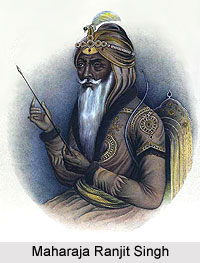 Kasur Gharana came into existence during 19th century but soon by the 20th century it lost its identity. Irshad Ali Khan is regarded as the originator of the Kasur Gharana. He belonged to Kasur and was a musician in the court of Maharaja Ranjit Singh. As he belonged to Kasur his family was known as Kasuriya. Kasur was absorbed into Pakistan after the partition of India. Most of the artists of the Kasur Gharana settled in Pakistan and the rest who came to India became disciples of the Patiala Gharana. Thus the great tradition lost its existence and identity. As the artists adopt a new style he achieves brings glory to the style but the original style id forgotten. This occurred with Kasur Gharana. The artists, who adopted the style of Patiala Gharana, became proficient artists of Patiala Gharnana in Punjab.
Kasur Gharana came into existence during 19th century but soon by the 20th century it lost its identity. Irshad Ali Khan is regarded as the originator of the Kasur Gharana. He belonged to Kasur and was a musician in the court of Maharaja Ranjit Singh. As he belonged to Kasur his family was known as Kasuriya. Kasur was absorbed into Pakistan after the partition of India. Most of the artists of the Kasur Gharana settled in Pakistan and the rest who came to India became disciples of the Patiala Gharana. Thus the great tradition lost its existence and identity. As the artists adopt a new style he achieves brings glory to the style but the original style id forgotten. This occurred with Kasur Gharana. The artists, who adopted the style of Patiala Gharana, became proficient artists of Patiala Gharnana in Punjab.
Irshad Ali Khan, the founder of the Kasur Gharana was one of the most renowned artists of his time. After his death his son Mohammed Ichha Khan was appointed as the court musician of the Patiala State. However he died at a very early age. His two sons Kale Khan and Ali Baksh who were just 14 and 11 years old respectively became disciples of Ustad Fateh Ali of Patiala Gharana. Ustad Fateh Ali was a proficient singer and had attained the title of Karnail. Ali Baksh had four sons, Bade Gulam Ali Khan, Bakat ali Khan, Mubarak Ali Kahn and Aman Ali Khan. All the four artists earned great name in this field. All the four specialised in different styles like Dhrupad-Dhamar, Khayal, Thumri, Gazal and light music. Ustad Bade Gulam Ali Khan specialised in Khayal Gayaki and Ustad Barkat Ali excelled in Thumri and Gazal. Bade Gulam Ali Khan after the partition had returned to India and adopted the style of Patiala Gharana. Presently Patiala Gharana is popular for the contribution of Bade Gulam Ali Khan. His son Ustad Munawwar Ali Khan was also one of the great exponents of Patiala Gharana.
Another eminent artist of Kasur Gharana, Ustad Jhande Khan was proficient in the field of classical music as well as light music. He was also a competent harmonium player. He has also served in many theatres as a music director. His compositions are very popular and were largely appreciated. Ustad Jhande Khan is also credited with composing misic for films and famous plays like Mahabharata, Krishna- Sudama and others. He composed his lyrics in classical Raagas. One of his famous compositions is "Neel kamal muskaye, bhawra juthi kasam khaye." His compositions thus stand as a proof of his refined musical talent. Presently the Kasur Gharana has become completely extinct.




















